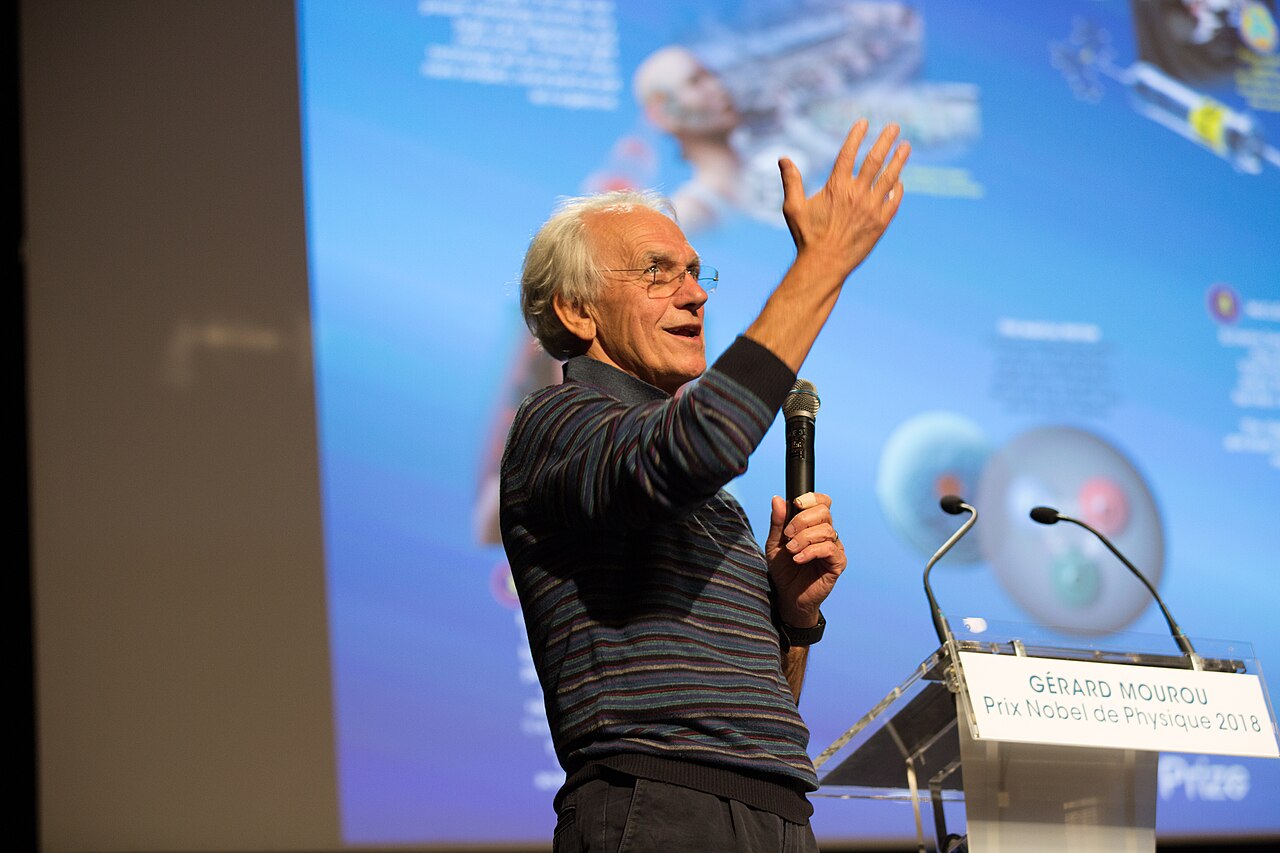In a key development for scientific research in China, renowned French physicist and Nobel laureate Gérard Mourou has accepted a prestigious chair professorship at Peking University’s School of Physics.
Born in 1944 in Albertville, France, Mourou earned his doctorate from Pierre and Marie Curie University in 1973 before moving to the University of Rochester in the United States, where he conducted the pioneering work that led to his Nobel Prize.
Nobel-winning laser scientist Mourou has also held faculty positions at the University of Michigan, where he founded the Centre for Ultrafast Optical Science, and at the École Polytechnique in France.
According to the SCMP, his appointment, which took effect on October 12, marks a promising step toward establishing a new research institute dedicated to advanced studies and international collaborations.
The announcement was made public on the university’s website and highlights Mourou’s anticipated role in fostering groundbreaking research across several critical areas, including laser physics, particle and nuclear physics, medical physics, and astrophysics.

The report said that over the coming weeks, Mourou will be engaging with students and leading researchers within the university’s cutting-edge teaching and research facilities.
Mourou, who shared the Nobel Prize in Physics in 2018 for his innovative work on chirped pulse amplification—a technique that revolutionized ultra-fast laser applications in fields such as eye surgery and precision manufacturing—has long been an advocate for scientific advancements in China.
At a public event in Beijing shortly after receiving his Nobel Prize, Mourou expressed admiration for China’s rapid scientific progress, stating, “The gap is really narrowing. I was amazed to see the progress. I don’t know how you can do better than that.”
Mourou’s expertise and vision are anticipated to benefit the establishment of the new research institute at Peking University. He previously contributed to the development of a laser-driven, multi-beam facility in collaboration with Peking University, the École Polytechnique in Paris, and the global technology company Thales.
His extensive achievements include initiating the Extreme Light Infrastructure, which comprises the world’s largest and most advanced high-powered laser facilities located in the Czech Republic, Hungary, and Romania.
Top Global Talent Moves East
China’s rapid advancements in science have sparked widespread recognition of the country’s commitment to fostering innovation, attracting top researchers from around the world.
Nobel laureate Gérard Mourou, known for his praise of China’s scientific progress, is among many experts acknowledging the nation’s rising stature in global research.
In recent years, Beijing has successfully drawn a number of prominent Western scholars to its universities. One notable example is Michael Owen Jordan, a leading figure in machine learning and a distinguished professor from the University of California, Berkeley.
Last year, he was appointed Honorary Professor at Tsinghua University, a prestigious role that highlights China’s growing appeal to top researchers.
Jordan, widely regarded as one of the most influential computer scientists, also received the 2022 World Laureates Association Prize for his fundamental contributions to machine learning.
This trend of attracting international talent is not limited to foreign scientists. A significant number of Chinese researchers who once worked in the United States are now returning to China due to an increasingly hostile research environment in the West.
Geopolitical tensions and heightened scrutiny of Chinese academics in the US have led many to seek opportunities elsewhere. Beijing, eager to enhance its scientific capabilities, has ramped up efforts to recruit and retain these highly skilled professionals.
Sun Song, a Chinese-born mathematics expert who spent over a decade researching and teaching at the University of California, Berkeley, is one such case. Earlier this year, he returned to China to take up a full-time professorship.

Similarly, biochemist Kunliang Guan, after three decades in the U.S., accepted a chair professor position at Westlake University in Zhejiang province.
This trend extends beyond the US In May 2023, Zhang Yonghao, a prominent physicist specializing in superfast fluids, returned to China after more than two decades in Britain to join the nation’s new hypersonic laboratory.
Likewise, world-renowned mathematician Yau Shing-Tung retired from Harvard University in 2022 to take a full-time teaching position at Tsinghua University.
China’s ability to attract such distinguished talent reflects its determination to become a global leader in science and technology, further solidifying its status as a hub for groundbreaking research.
- Contact the author at ashishmichel(at)gmail.com
- Follow EurAsian Times on Google News




